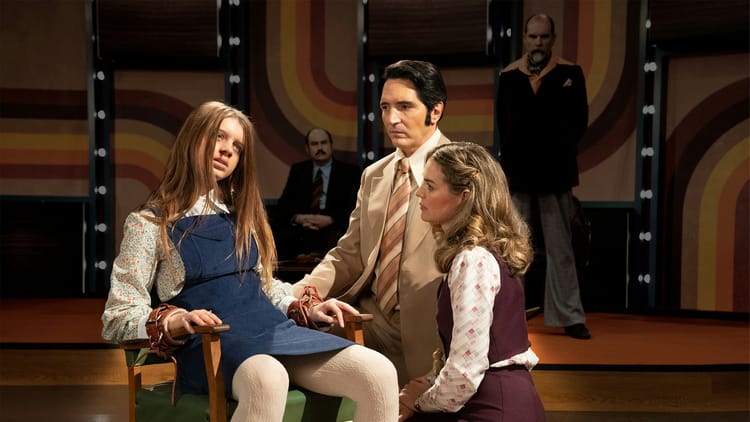Tenet
Christopher Nolan redefined Batman for modern audiences, gave us genre-breaking thrillers like Memento and The Prestige, and popularized the idea that a movie should blow your mind. I doubt Nolan would put in terms like that, but many of Nolan's films hinge on that last minute reveal/twist, that alter everything we've already seen. The rug gets pulled out from underneath us, and suddenly, we're in a dream, or not a dream, or in space, or the future, or something Grand of that sort.
For me, Nolan is at his best when he's not focused on the trick; when characters are clean, dialogue is focused. In Dunkirk and Batman Begins, the premise takes the backseat to driven characters, that through their actions, take us from setting to setting. On the other end, Nolan is at his least enjoyable when he's so fascinated by a singular philosophical concept that his characters become tools to maneuver between set-pieces, only showing bits of their humanity when they drone on in incoherent musings on Big Ideas. Interstellar is a prime example of this, with a powerful emotional opening that eventually crumbles as we lose track of what exactly anyone wants. The question is: is Tenet more Dunkirk or Interstellar?
Perhaps this is an unnecessary binary. But I think it's worthwhile to inform you that Tenet is the most Interstellar Nolan has been. That is to say, if you liked Interstellar, if you could tolerate philosophical ramblings coming from empty mouth-pieces, no through-line to follow, if you enjoy the feeling of tumbling for two and a half hours, then Tenet will be for you. If you're like me, and you like watching your movies without having to draw a diagram to unpack its timeline, you're going to end up with a headache.
Tenet hits the ground running, with a rapid hostage-siege-double agent backstab-torture sequence. It's a whirlwind, but it's still welcome, as we're thrust into the middle of the action. But as scenes progressed, I never found my footing. Every time I am about to understand a character's motivation or conflict, we're shoved into a new location, introducing a wholly new dynamic. It's extremely confusing how a movie that chooses to tell instead of show so much, still ends up giving so little. Characters divulge vast amounts of exposition with little to no emotion, yet we're still confounded by what is going on. It's a little trite to comment on storytelling rules, especially since most of those rules are meant to be broken. But in the case of Tenet, I'm not complaining about a non-linear story or show-not-tell. I'm immediately concerned with the fact that before time travel paradoxes or palindromes even matter, Tenet is already a garbled mess of contradictions, bland characters, and MacGuffins.
None of this is helped by some of the worst sound design I've experienced in the cinema. It baffles me as to why, picture after picture, Nolan is satisfied with almost entirely incoherent dialogue. I did not understand what was going on very often in this film, because I literally could not understand what they were saying. Nolan's incomprehensible dialogue has been an issue since Bane's infamous mask in The Dark Knight Rises. Interstellar was no better with the orchestral swells overpowering much of the dialogue. In Dunkirk, it was hardly mattered because characters barely said anything. But in a spy movie, where our protagonist is thrust from locale to locale being briefed on his latest expedition, it is incredibly frustrating to not even know who he is trying to kill and why. In Tenet, exposition takes precedent over everything else, and yet, we still can barely hear it.
No matter how convoluted a concept, Nolan will give you something impressive to look at. There's a pair of fight scenes in this movie which when viewed together are a masterpiece in cinematography and fight choreography, using visual techniques I've never seen before. Every few minutes I found myself thinking, how on earth did they shoot that? With each set-piece, Tenet cemented Nolan as a cinematic magician. But what makes for truly memorable action are set-pieces that communicate stakes, tension, and character. Mad Max: Fury Road and Mission Impossible: Fallout leave the audience breathless because we know what is at risk, what our characters are fighting for. In one of Tenet's action scenes, I was astounded by what Nolan had caught on camera, but had no idea why any of the characters made it happen. This was the case for most of the film: I was in awe of Nolan's technical prowess but was at a complete loss why the characters were even in that city to begin with.
I could spend some time talking about the performances in this film, how delightful Robert Pattinson is as a much needed wildcard, Elizabeth Debecki's great spin on the damsel-in-distress, or John David Washington's rising star power. But the fact is, every time I found myself enjoying their performances, the film would launch them into either a lengthy description of a time-travel rule, or a dispirited, dry monologue on human existence. In these instances, I lost sight of the actors, and merely saw Nolan trying to get us to see what his movie is about. I would have loved to see Pattinson and Washington given more free rein, to watch their characters grow close. But they speak to each other as if they are robots, every word focused on their upcoming hijinks.
I don't regret watching Tenet. It's a fascinating, ambitious, and headache-inducing movie, that's gives audiences a lot to talk about. But I just wish Nolan gave us a bit more to talk about, like the emotional impact or the character's journeys instead of boring topics like plot-holes or clarifying time-lines. Because ultimately, Tenet is a hollow, shiny movie. At times, it seems to suggest there is something at its core, some emotional heart to these characters and their relationships. But those gestures are meaningless because the film assumes that we must care about these characters' goals simply because they exist. Maybe it's unfair because we don't ask James Bond why he wants to save the world. But then again, at least we know what James Bond is doing. We aren't confused about whether he's stealing a painting, killing an arms dealer, trying to time travel, or all three at once. In a film as impenetrable as this, Nolan could have at least given us some grounding with its characters. If we knew who was who, and why they wanted what, I could endure some paradox-slinging, time-pincer-swinging, good old-fashioned subterfuge. But instead, we got Tenet. A movie that is absolutely awe-inspiring in its technical achievements, unintelligible with its dialogue, and really, about nobody at all.




